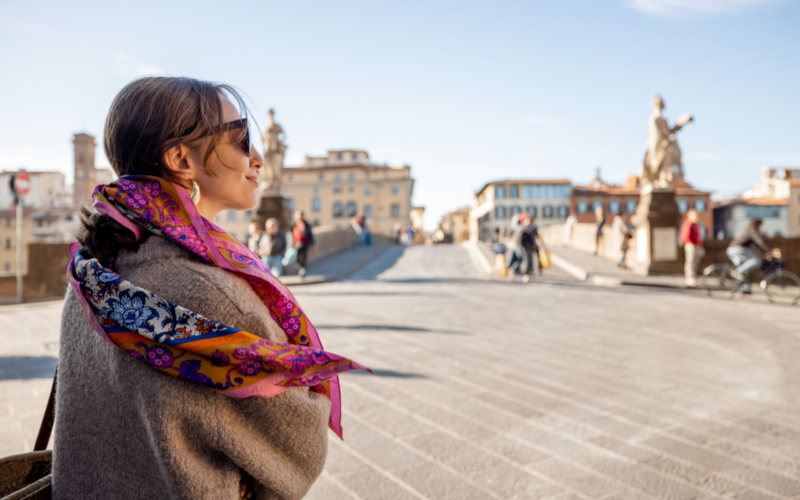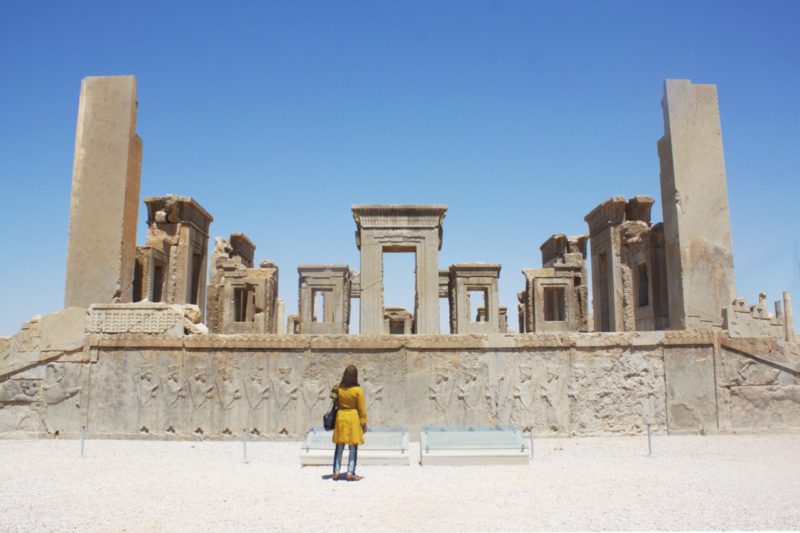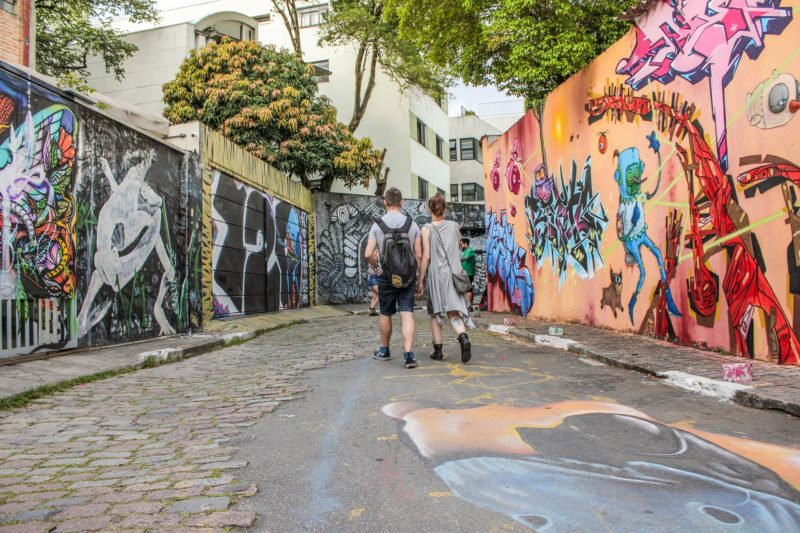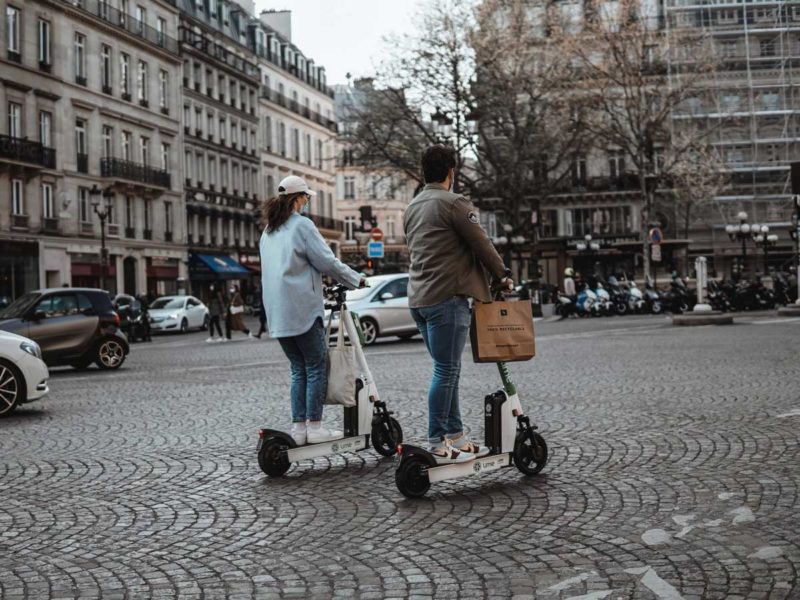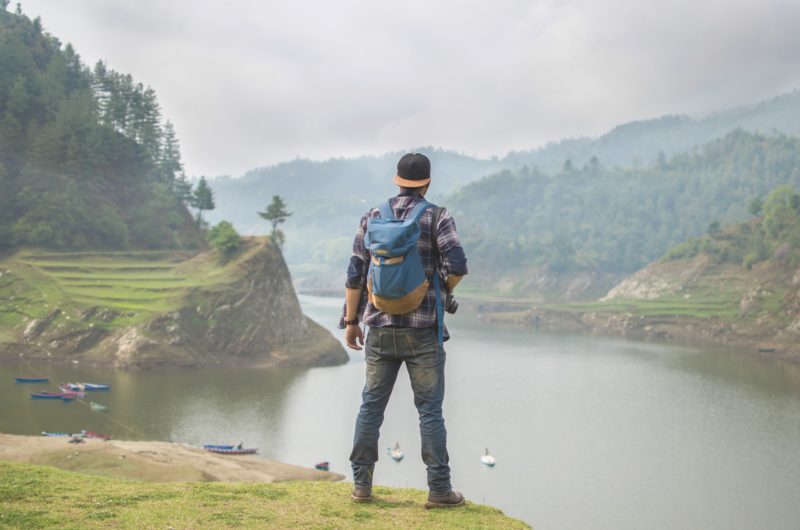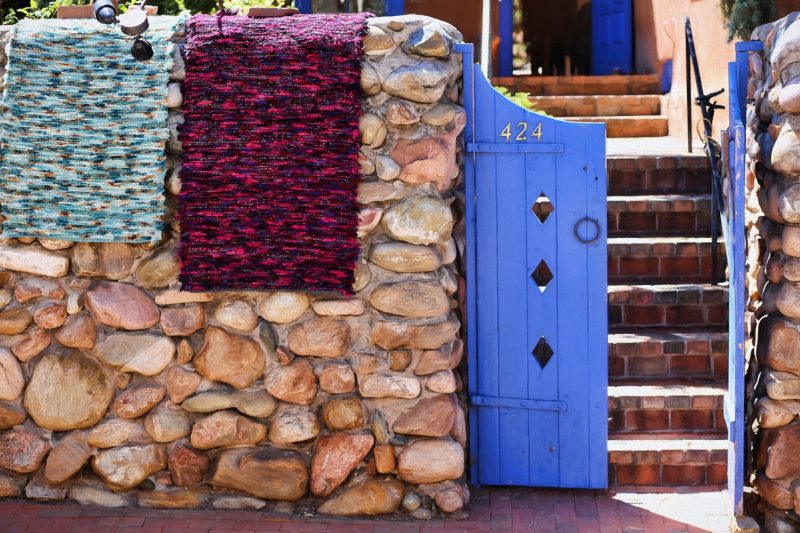Traveling on a budget can be hard enough; but doing it sustainably? What does that even mean? Is sustainable travel even possible at all?
In this article, we’ll dive into sustainable travel on a budget, what it means and how to do it. We’ve got a number of tips on how to save money while traveling. Let’s get into it!
What is sustainable travel?
Sustainable travel goes beyond looking at your consumption levels and ‘leaving no footprint’. It means being aware of economic and social issues as well, and rather than leaving no footprint at all, leaving a place better than you found it. A 2019 research paper redefined tourism as:
“The process of local communities inviting, receiving and hosting visitors in their local community, for a limited time duration, with the intention of receiving benefits from such actions.”
Is sustainable travel expensive?
As in most industries, the term ‘sustainability’ has become a buzzword. Many tour operators, travel agencies and hotels use it to market their offerings: from places and activities powered by renewable energy, to selling food and drink that has been certified sustainable.
While historically the true cost of goods and services has rarely been passed on to the consumer, one thing we need to understand is that once we think about our purchases and experiences through a sustainable lense, some things will end up being more pricey. That being said, there are ways to bypass expensive tourist or comfort traps, and avoid the sustainable holiday activities that are catered to people who aren’t necessarily traveling on a budget.
How to travel on a budget
Travel off-season

Being a responsible tourist means understanding your impact. In many countries across the world the sheer number of visitors has had a negative impact on local people and the environment. It’s important to do your research, understand when there may be legions of tourists walking around and when you may get a chance at a glimpse of ‘normality’. For example, the movie ‘The Beach’ was filmed on a beach in Thailand, which subsequently had to be closed to protect the coral from over tourism at one time.
Traveling off-season will not just allow you to save money on flights and accommodation but it will allow you to better immerse yourself in the local lifestyle.
Also bear in mind that off-season doesn’t necessarily have to mean school holidays or summer time in your country. Off-season varies from country to country, depending on rainy or hot weather, as well as particular cultural events.
Stay in locally-run accommodation

Staying in a hotel definitely has its perks – there’s no need to cook or clean, and if you have any questions, staff have a wealth of knowledge about the area, including activities you may want to do. The number of green tourism awards and accreditations are rising, meaning hotels can now signal very easily whether or not they are championing sustainability.
If you’re traveling on a budget, accommodation is one of the first places you can save money.
Look for locally run accommodation. This could be a hotel, or a room in someone’s home that you can rent. Airbnb has faced trouble in a number of places around the world for pricing out locals, especially through foreign investments. Not only does choosing a locally owned hotel or Inn or apartment keep money in the local economy, it is a more authentic experience as well.
Another option for adventurous travelers on a budget is couchsurfing. Couchsurfing is a platform, where you can meet and stay with like-minded people, from all over the world. You can check out the profiles and reviews of everyone on there and make up your mind whether this may be something for you. The stay is absolutely free (although it would be courteous to do something for your host in return – maybe cook your favorite meal for them?) and what you get out of it will almost guarantee the best and most unique vacation ever!
Another great way to travel on a budget is to try WWOOFing – World Wide Opportunities on Organic Farms. It’s a great way to experience a new country and culture. You exchange working on locally owned organic farms for free accommodation. Opportunities exist in more than 130 countries around the world.
Use public transport and/or walk
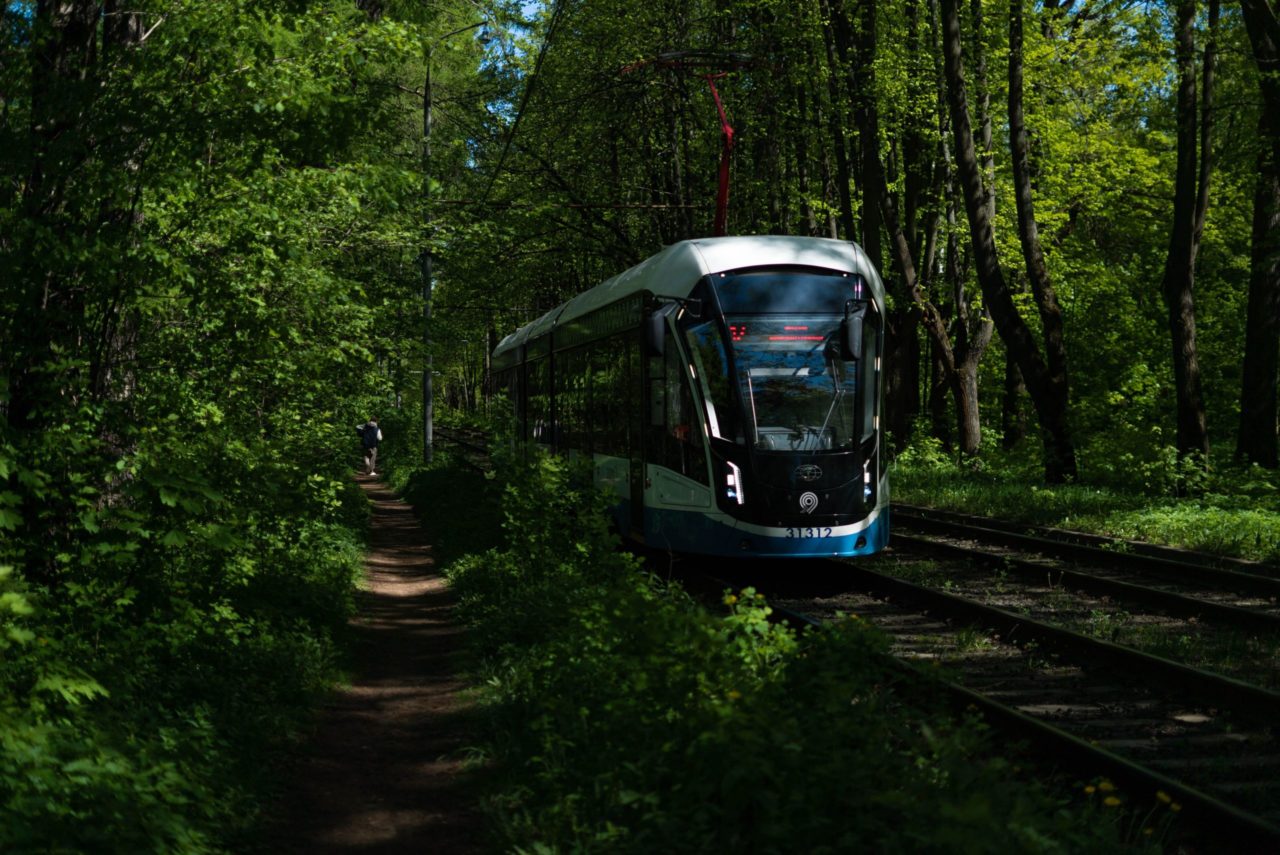
We know how tempting it can be to order an Uber or taxi whenever you visit a country, where fares are cheaper than at home. However, not only is that potentially unsustainable or not budget-friendly (once it starts adding up…), you may actually be robbing yourself of authentic experiences. If you travel like a local, you really get to know the city and you may even spark a conversation. Many cities in the world have an extensive public transport system. Some cities even include ferry links in this, meaning you can save money you may have otherwise spent on expensive tourist boats.
Research before you travel, as you may find out about any deals for short or long stays, group options or combination tickets.
Even if there is no good public transport system, if you can, try to walk or bike in between the places you’re visiting. Slow travel has so many benefits, forces you to step out of your comfort zone and gives you a real feel for wherever you are. By renting a bike, you can cover much more ground as well, which may be helpful when you’re not staying in one place for too long.
If you’re backpacking, one way to save money on accommodation is to book an overnight train or coach to get to your next stop. Europe has an extensive railway system and many South American and Asian countries have a number of coach companies running between locations. This will save you both time and money, as you won’t have to book accommodation and then travel during the day.
Join free walking tours
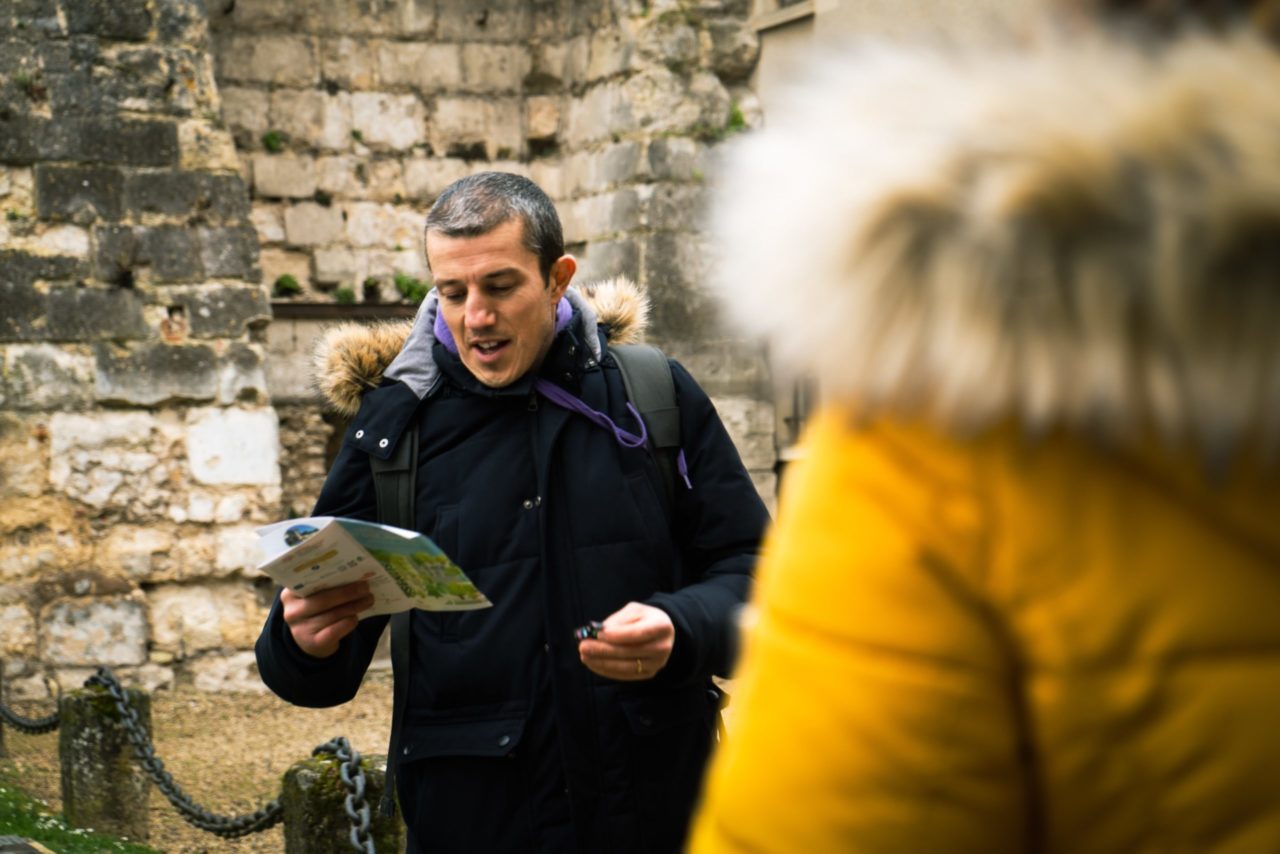
You can join free walking tours in many countries in the world. Search: ‘free walking tour in [city you’re visiting]‘ and you should get a number of different providers. These are generally led by students or passionate locals who will have a lot of insider knowledge you may otherwise not get access to.
Walking tours are particularly useful for solo travelers, as you get the chance to meet new people, as well as learn about the country or city you’re staying in. It’s customary to give a tip at the end of the tour, however you can give as much as you can. It’s nowhere near the price of other tourist tours, which makes it a great option for traveling on a budget.
Shop in local stores and prepare meals

Depending on where you are, exploring local restaurants or street food markets may be the cheapest option. It’s best to do some research in advance so you know what you can expect to pay in the country you’re visiting. One way to save some money on travel is to plan not to eat out for every single meal. Whether that’s buying fresh fruit for breakfast or preparing snacks for on-the-go.
With meat being resource-heavy and generally expensive, we recommend challenging yourself to be as plant-based as possible on your travels. More unusual or imported food where you live could be considered a staple in the country you’re visiting. So you can go crazy experiencing new, super healthy budget-friendly local food. Plus, local markets are fun to visit and explore.
If you do choose to go out to a restaurant, use apps like TripAdvisor or HappyCow (for vegetarian and vegan options) to help you decide.
Lastly, if you’re traveling in Europe or North America, you can try the “Too Good to Go” app – an app that fights global food waste and allows shops and restaurants to sell perfectly good food that would’ve otherwise gone to waste at a reduced price.
Use a card that doesn’t charge transaction fees
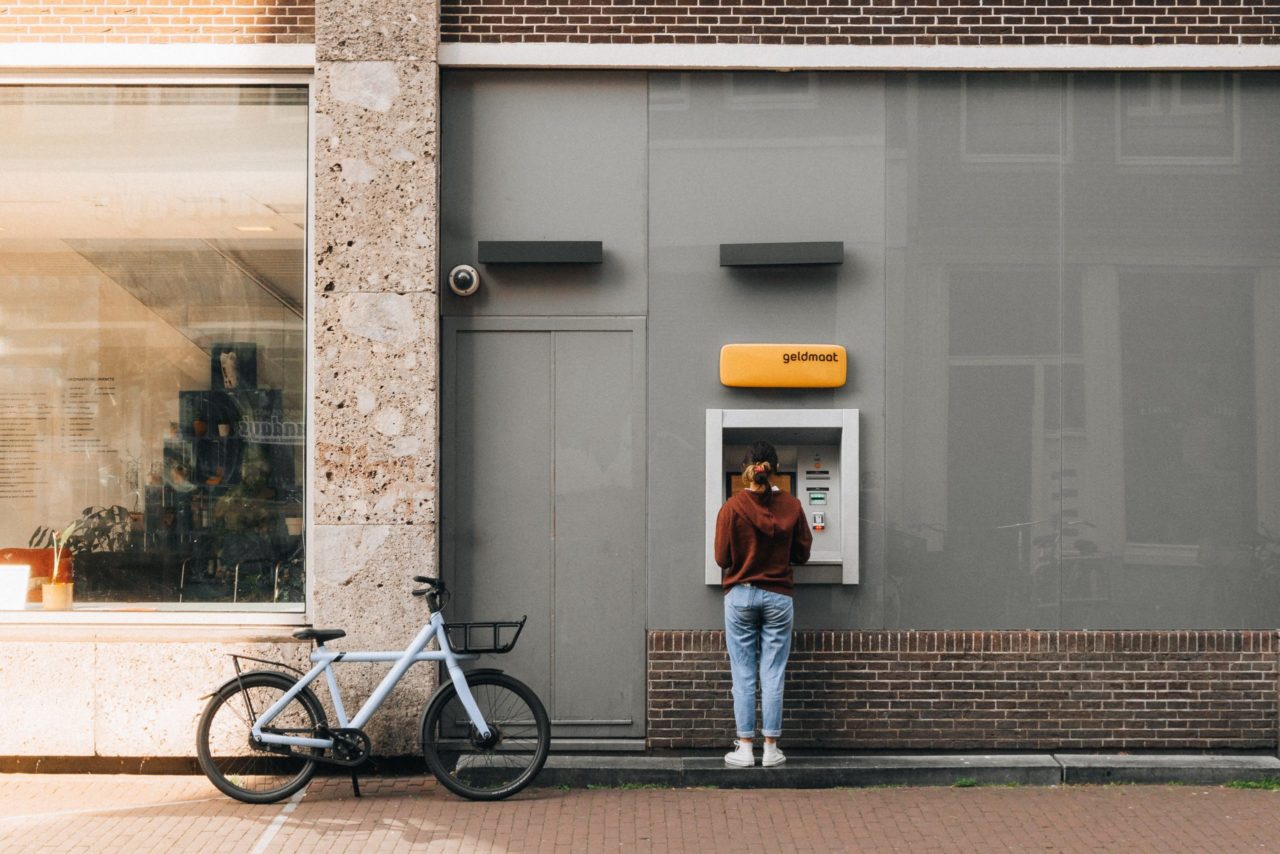
Some charges for withdrawing money or even paying in a different currency can be really high. Make sure you have a bank card that helps you avoid these costs. A top-up account will also give you a good overview of your budget.
But don’t stop there, if you can choose an ethical bank, you’re also ensuring that your money doesn’t have extensive investments in fossil fuels or militaries. For example, a Monzo card allows you to withdraw cash at most banks, as well as make payments without the card transaction fee. The bright orange card has also been a reported conversation starter in several countries in the world!
Another similar alternative is Starling Bank. Both of these banks are in Ethical Consumer’s top 5 ethical banks.
Bring a reusable water bottle

Plastic water bottles can easily become your biggest waste stream while traveling. Bringing a reusable water bottle is one of the simplest ways to be sustainable when you travel on a budget. In countries where the tap water is drinkable, you can refill your bottle at the start of the day, and get restaurants or shops to refill it for you throughout the day. Some countries even have refill stations dotted around the city (often at public transport stations). Check out Refill, a campaign to reduce plastic that offers an app to find refill stations globally.
A reusable water bottle is also useful for countries where you can’t drink the tap water. Rather than buying lots of small bottles, buy large water containers – you can buy 3-5L tanks (or even more) in supermarkets in most countries. Not only does buying your water in bulk save you money while traveling, you are also reducing your plastic footprint, a win-win situation!
It’s also worth noting that there are reusable water bottles nowadays that will filter your water and remove anything from bacteria and parasites to chemicals and microplastics. One example of these is Larq.
Sustainability is an attitude
The most important thing to remember is that sustainability is more of an attitude than it is a checklist. You may have the best of intentions and try to follow every single tip from this article – and still not be able to do it at all. And that is absolutely fine! We’re all on a journey (literally and figuratively) and the fact that you care about treading lightly in the first place is great.










